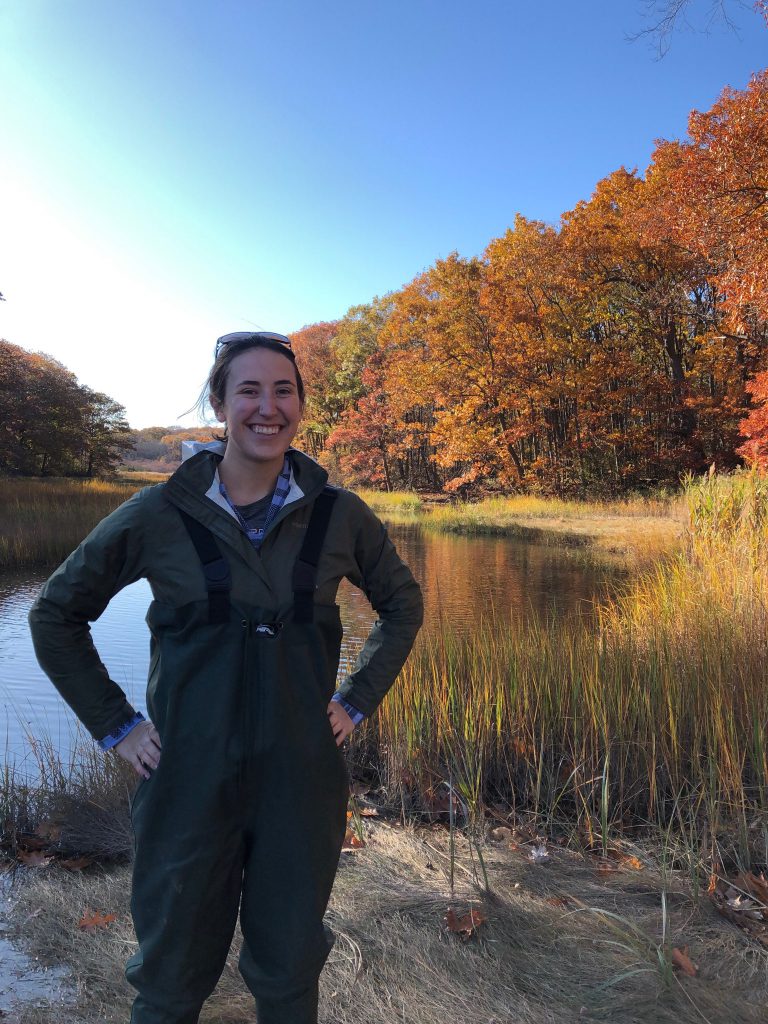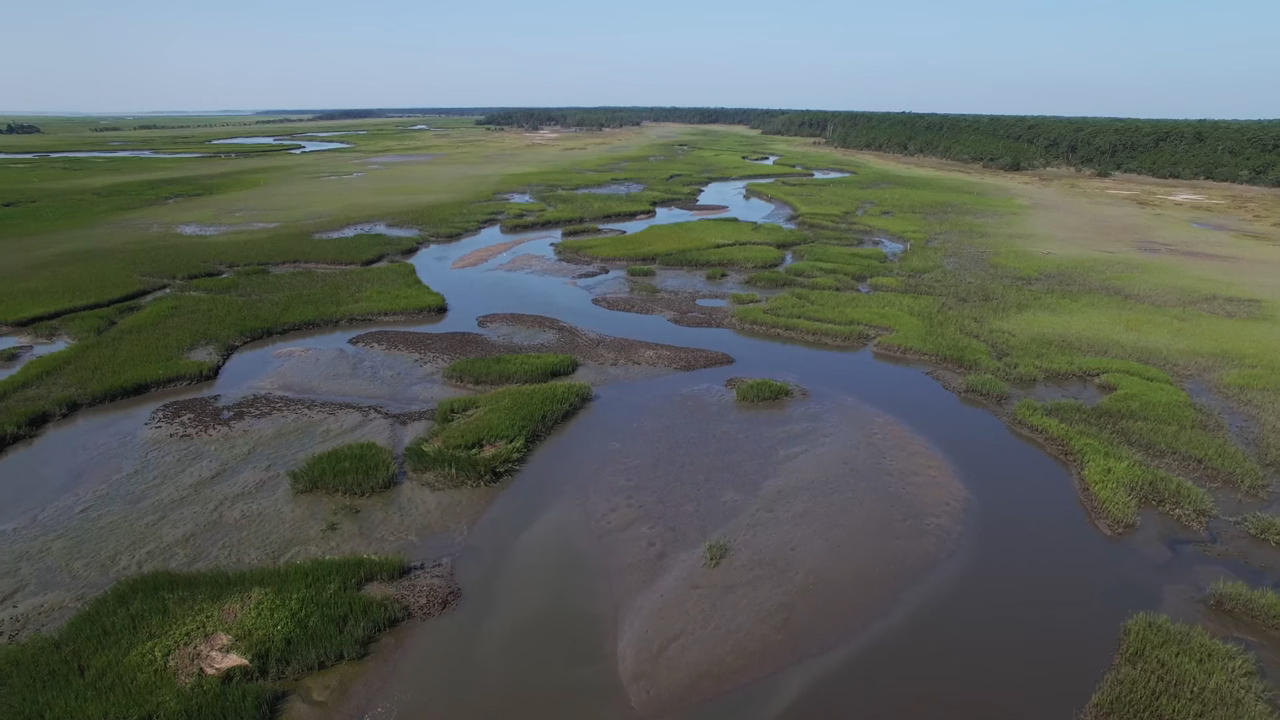
Johanna L’Heureux will be conducting research on the reserve as a Margaret A. Davidson graduate fellow!
The main goal of her research is to understand how marsh elevation and nutrients (Nitrogen & Phosphorus-based fertilizers, in many cases) affect salt marsh carbon storage. Marshes face both sea level rise and nutrient additions from wastewater and fertilizer runoff. As a result, marsh health and the ability of marshes to store carbon, is being threatened.

Johanna will be using marsh organs (pictured above) to experimentally examine the effects of elevation and nutrients. As the tide comes in, the pipes of the marsh organ are flooded, and the various levels on the organ can mimic sea level rise.
Johanna nicely describes her research: “In order to learn more about the carbon captured by the marsh grass, Spartina, I will create a chamber around the marsh organ and add CO2 that is labelled with an isotope. The isotope label acts as a marker for carbon and will allow me to trace the carbon from the atmosphere, into the plants, and ultimately into its roots and surrounding sediment. The data I collect from the marsh organs will be used to improve models that predict how marsh carbon storage will change as effects of climate change intensify.”
This research will help inform reserve managers and other decision makers on how to maintain marsh health and productivity as the climate changes.
Learn more about the Margaret A. Davidson Fellowship at: https://coast.noaa.gov/nerrs/



